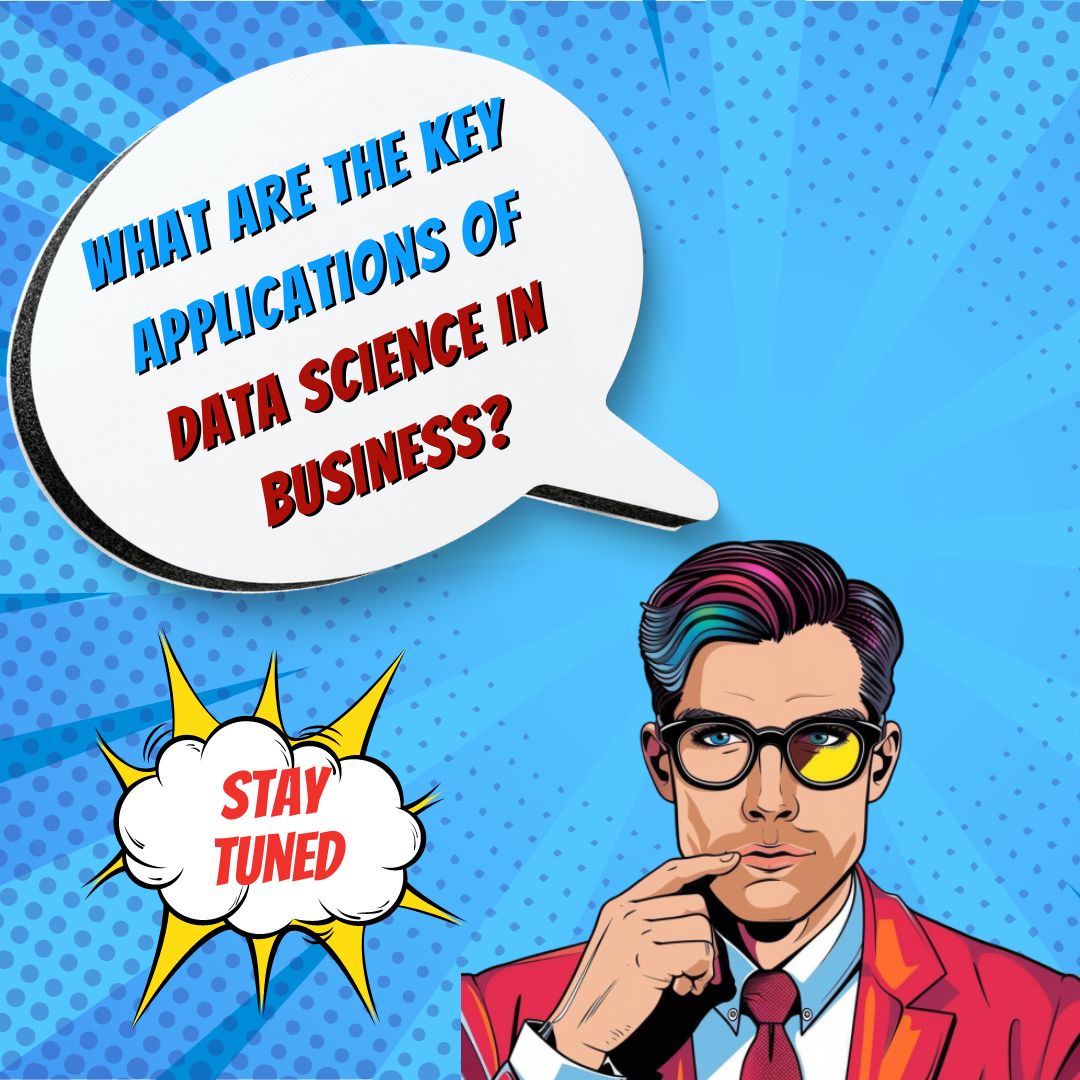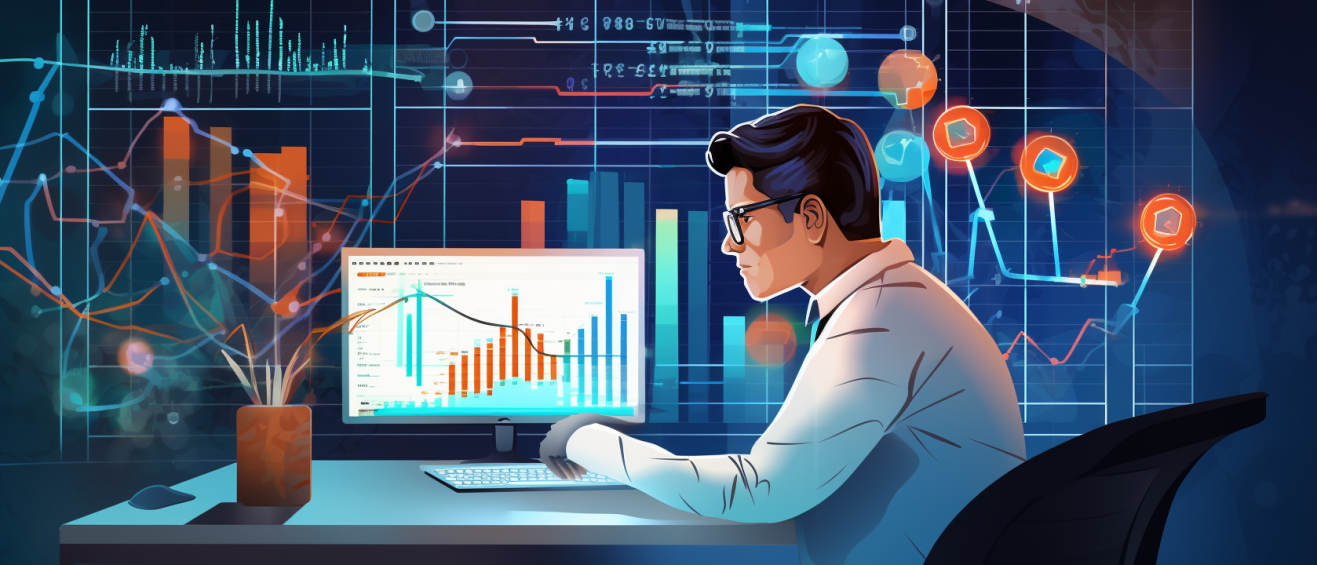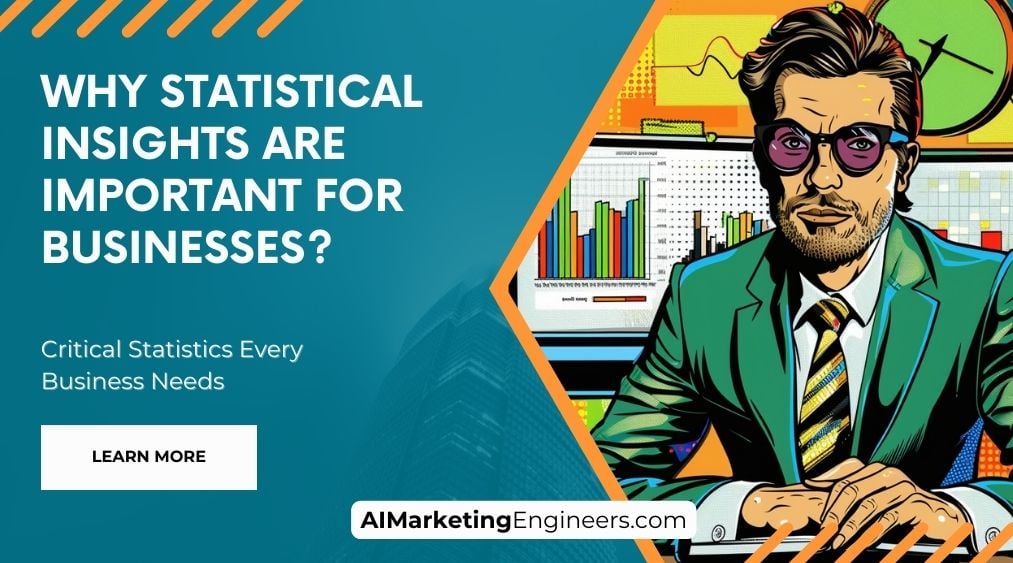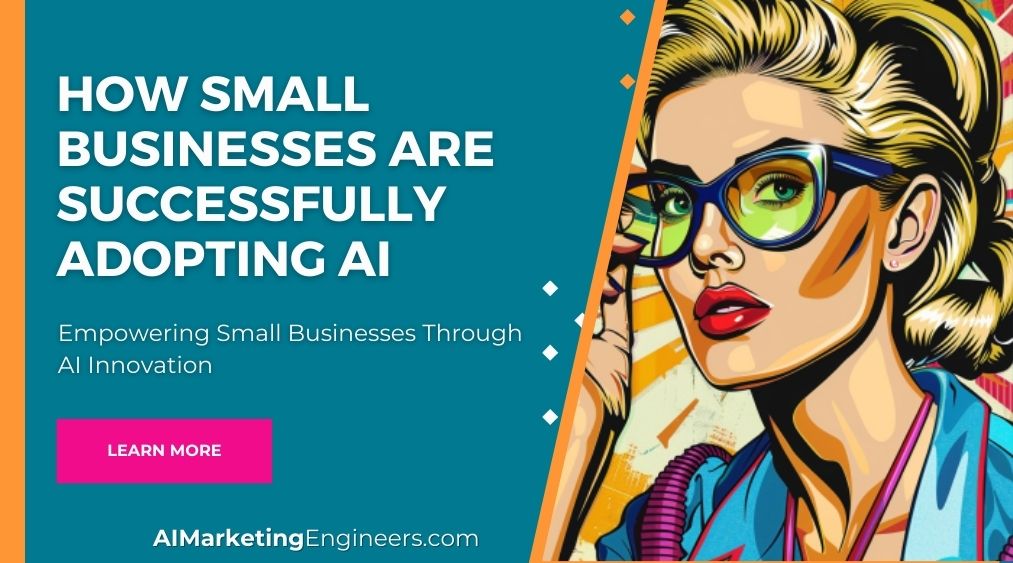Key Takeaways
✅ Data-driven Decision Making: Imagine turning raw data into a treasure trove of decisions that keep your business not just afloat but sailing smoothly ahead. Data science translates numbers into narratives, spotlighting where you're winning, where you need a nudge, and what the market's murmuring about next. The result? Decisions more informed than your morning newspaper.
✅ Predictive Analytics and Forecasting: Ever wish you had a crystal ball for your business? Predictive analytics is the next best thing. It crunches past data to paint a picture of future trends, helping you stay two steps ahead. Apply it and watch the road – you'll see potholes and parties ahead, giving you a chance to steer clear or join the dance.
✅ Personalization and Customer Experience: Customers are the heart of any business, and data science is like having a heartbeat monitor. It helps you serve up exactly what your customers crave, almost before they know they want it. Return the love with personalized experiences, and you'll be turning one-time shoppers into loyal fans.

Introduction
Ever peeked behind the curtain to see how the magic of data science is making waves in the business world? It's like finding the secret recipe to a crowd-favorite dish. With each business craving a chunk of success, how is data science tipping the scales in their favor?
Data science is the silent hero of today's business battleground, offering a sharper lens to zoom in on what really matters. From wrapping your head around customer desires to charting a map for future adventures, it's all about turning good guesses into great strategies.
And here’s the good news: we're about to spill the beans. Gone are the days of "just go with your gut." We've got a goldmine of insight that's waiting to elevate your bottom line and carve out your niche in the market. So, hungry for more? Keep reading as we unveil the trade secrets that are reshaping the business-scape. Get ready, because this article isn’t just going to illuminate paths; it's set to ignite a beacon for your next big leap!
Top Statistics
| Statistic | Why It's Important |
|---|---|
| Market Growth: The global big data and business analytics market is expected to grow to $274.3 billion by 2022, at a CAGR of 13.4%. (Source: IDC, 2021) | Shows the rapid expansion and vital role of data analytics in driving business strategies and decisions. |
| Industry Adoption: 91.6% of companies with over 100 employees use data analytics. (Source: MicroStrategy, 2021) | Illustrates how deeply embedded data science has become in modern businesses, large and small. |
| Data Strategy Implementation: 83% of businesses have a strategy for data, with 78% employing data professionals. (Source: NewVantage Partners, 2021) | Emphasizes the importance businesses place on structuring and analyzing data to extract valuable insights. |
| AI Integration: 53% of organizations have adopted AI in at least one business function. (Source: McKinsey, 2020) | Indicates the growing trend of leveraging AI to enhance efficiency and create competitive advantages in various areas of business. |
| Skills and Investment: 59% of organizations plan to increase their investment in data science and AI within the next year. (Source: McKinsey, 2020) | Highlights the recognition of data science as a key driver for growth and the urgent need for more expertise in the field. |
The Role of Data Science in Today's Business World
Have you ever wondered how companies know exactly what you want before you do? Well, data science is the quiet power behind the throne in the modern business kingdom. It's all about digging into heaps of information to fish out valuable insights. This ensures businesses aren't just shooting in the dark but making decisions with a sharpshooter's precision. In a landscape that changes quicker than a chameleon, data science is the compass that guides companies to make smart, informed choices that can pave the way for strategic growth.
Gathering and Guarding Business Data
Imagine data as the lifeblood of a company—pumping, flowing, and fuelling everything it does. Thus, collecting and managing data is no game; it's serious business. How you grab data - be it through web scraping, using APIs, or plucking it from databases - and then how you keep it safe and organized, is a balancing act. Like a meticulous librarian, a business needs to be both orderly and security-minded, ensuring that not a single byte of valuable information is misplaced or falls into the wrong hands.
Cracking the Code with Data Analysis
Now, think about a treasure map. The raw data is the "X marks the spot," but you need a good dose of exploratory data analysis to actually find the treasure. It's like a detective's investigation, sifting through clues (data) to spot the patterns. With predictive modeling and the wizardry of machine learning, businesses can forecast trends and customer behaviors. And voila, with snazzy visualization tools, even complex data stories can be told in colorful graphs and charts that anyone can understand.

Data Science: The Business Multi-Tool
Whether you're selling shoes, crafting policies, or building spaceships, data science is as vital as a Swiss Army knife. In marketing, it's like having a crystal ball to predict what customers will crave next. Over in finance, it's about spotting economic tsunamis before they hit. For operations, it streamlines processes like a well-oiled machine. And let's not forget HR, where it can unearth the brightest talents. Peeking into companies that nailed this has become almost like reading fairy tales of business success - it can really be that transformative.
Navigating the Challenges and Seizing Opportunities
Of course, venturing into data science isn't a smooth sail. Businesses often wrestle with data quality issues, privacy mazes, and the ever-present talent hunt. But oh, the possibilities! For businesses ready to jump over these hurdles, data science is a gold mine of opportunity. It's the stuff that can catapult a company into a competitive edge and spur waves of innovation.
Ready for Tomorrow: Data Science's Business Horizon
What's next is always the billion-dollar question, isn't it? In the realm of data science, expect an invasion of intelligent machines from the land of artificial intelligence, chatty bots powered by natural language processing, and data crunching on the fringes with edge computing. Companies looking to ride the crest of the wave need to stay on their toes, constantly adapting and arming themselves with the latest data science arsenal.
Harnessing the power of data science is a journey marked with challenges, but for businesses keen on not just surviving but thriving, it's a journey worth embarking on. Remember, in a sea of competition, data science is the anchor that can keep your business ship steady and sailing towards success.

AI Marketing Engineers Recommendation
Recommendation 1: Leverage Data Science for Enhanced Customer Personalization: Today, personalization isn't just a fancy trick. It’s what your customers expect. So, how do you sprinkle that magic touch? First, gather all the crumbs of data from your customer interactions. Think social media, purchase histories, and even customer service chats. Now, it's time for data science to step in. Using predictive analytics, you can tailor experiences for your customers like never before. This could mean personalized product recommendations or even customized emails that speak directly to your customer's hearts. Remember, the goal here is to make your customers feel like you know them – because, with the smarts of data science, you kinda do!
Recommendation 2: Harness Predictive Analysis for Smarter Decision-Making: Have you ever wished you could peer into a crystal ball and see the future of your market? Well, data science is kind of like that, but it's not magic—it's better. Predictive analysis helps you detect patterns that show where the market is headed. This doesn't just mean looking at what happened last year, but also analyzing current customer behavior, social trends, and even changes in the economy. Use these insights to predict what products might take off or which investments could pay off. Staying ahead of the curve not only makes you look smart, but it also puts you in a great position to capitalize on emerging opportunities before everyone else catches on.
Recommendation 3: Opt for AI-Powered Data Visualization Tools for Easier Insights: Not everyone is a data wizard, and that's okay. But here's something cool – artificial intelligence (AI) can help shift through mountains of data and present you with beautiful, digestible visuals. Tools like Tableau, PowerBI, or Looker use AI to help you spot trends, outliers, and patterns that you might miss with the naked eye. The best part? You don't have to spend hours trying to make sense of complex spreadsheets. Instead, these tools serve up insights on a silver platter, so you can make informed decisions swiftly, and maybe impress your colleagues while you're at it. After all, a picture is worth a thousand words, and in the world of data, that's a whole lot of numbers you won't have to sift through yourself.

Relevant Links
- Master the Digital Future: The Role of Data Science in Business
- The Art of Predictive Success: Transform Your Business with Data Analysis
- Discover AI's Role in Crafting Tomorrow's Marketing Strategies
- Boost Your SME Growth: Leverage ChatGPT's Revolutionary Marketing Capabilities
- Edge Over Competitors: How Data Science Anchors Business Success
Conclusion
So, we've journeyed through the dynamic world of data science and seen how it's more than just a buzzword—it's a game-changer for businesses big and small. Have you seen how this clever tool can sift through mountains of data to highlight what matters most for informed decisions? It's fascinating, isn't it?
Data collection and management anchor our understanding, guaranteeing that the data is ready and reliable for the deep dive. Sure, it might sound boring, but without this foundation, can you really trust the insights you get? Now, think about the data analysis and modeling that pull out those unexpected patterns and trends. They're the compass pointing businesses toward the uncharted territories of opportunity, wouldn't you agree?
Finding practical applications in the nitty-gritty of daily business routines is where data science truly shines. Whether boosting your marketing punch, tightening your company's belt on expenses, or scouting for top-notch talent, it's got your back. And let's not look past the challenges—oh, they're real. Quality, privacy, and finding the right minds to manage this digital wizardry are hurdles on this track, but they're not insurmountable.
Now, to the juicy part—what's in store for the future of data science in business? It's all about staying agile and hungry for that next big leap. AI, chatbots, crazy-fast processors—are you keeping up?
Let’s hear it for businesses ready to dive in and grab the data science wheel. Are you pumped to join them in wielding this potent tool? Remember, it's not just about surviving; it's also about thriving in a landscape that's changing faster than you can swipe on your phone. So, are you on board to invest in this indispensable asset and race ahead of the pack?

FAQs
Question 1: What is data science, and how does it apply to business?
Answer: Data science is an amazing mix of methods and tools that helps us to make sense of data. In the world of business, it's all about making smart decisions based on what the data tells us.
Question 2: What are the key components of data science in business?
Answer: At its core, data science in business involves getting your hands on the right data, making sure it's clean, sifting through it to find patterns, visualizing what you find, and building models that can predict future trends.
Question 3: How can data science improve business decision-making?
Answer: Imagine having a crystal ball that helps you understand your customers better, sharpens your operations, and guides you to make choices that are backed up by solid facts. That's what data science brings to the decision-making table.
Question 4: What are some common applications of data science in business?
Answer: Businesses everywhere are using data science for a variety of things like getting to know their customers better, smoothing out their supply chains, keeping an eye out for fraud, planning their finances, and figuring out risks.
Question 5: How can businesses get started with data science?
Answer: If you're ready to jump into the data science pool, start by figuring out your data needs, foster an environment that loves data, invest in the right tools, surround yourself with data-savvy people, and have a clear plan of action.
Question 6: What are the challenges of implementing data science in business?
Answer: It's not always a walk in the park. You have to deal with messy data, find people who know their way around data science, keep your data safe, and sway the skeptics who're resistant to change.
Question 7: How can businesses ensure data privacy and security when using data science?
Answer: Keeping data safe is like guarding a treasure. It means setting up strong policies, locking data up safely, using a secret code (encryption), and making sure everyone knows the ins and outs of data privacy.
Question 8: What are some best practices for data visualization in business?
Answer: When you're turning data into pictures, keep it simple and clear, pick the right kind of chart, stick to a color scheme that makes sense, and don't let any unnecessary stuff clutter your view.
Question 9: How can businesses use machine learning to improve their operations?
Answer: With machine learning, you can almost predict the future. It's like having a fortune teller that helps you figure out what your customers will want, how to set your prices, catch fraudsters, and make things personal for your customers.
Question 10: What are some resources for businesses looking to learn more about data science?
Answer: There's a wealth of knowledge out there. Tap into online classes, data science get-togethers, expert articles, communities of data lovers, and deep-dive academic research.

Academic References
- Provost, F., & Fawcett, T. (2013). Data Science for Business: What You Need to Know about Data Mining and Data-Analytic Thinking. O'Reilly Media. This book serves as a gateway to understanding the blend of data science in the business decision-making landscape, pressing on the significance of data-analytic thought processes and the methods apt for wringing out the value embedded in data.
- Mayer-Schönberger, V., & Cukier, K. (2013). Big Data: A Revolution That Will Transform How We Live, Work, and Think. Houghton Mifflin Harcourt. In this exploratory work, the authors unravel the vast world of big data, shedding light on its potential seismic effects across different facets of businesses, from the inner workings to customer engagement strategies.
- Janssens, J. (2014). Data Science at the Command Line: Finding insights with Unix, Python, and R. No Starch Press. Janssens takes you through a practical journey of employing data science in the corporate sphere utilizing open-source assets—the likes of Unix, Python, and R—and furnishes hands-on instances for the scrutiny and depiction of data.
- Harrington, P. (2019). Data Science for Business: Commercial Uses of Machine Learning. Packt Publishing. What this text brings to the table is a dossier of the manifold commercial utilities of machine learning in business, shining a light on its transformative power to enhance areas spanning marketing to operations and everything in between.
- Kaldero, N. (2018). Data Science for Executives: Leveraging Machine Intelligence to Drive Business ROI. Apress. Centered towards the boardroom class, Kaldero decodes the strategic utilization of data science in catapulting business ROI and empowers decision-makers with the acumen to harness machine intelligence.







